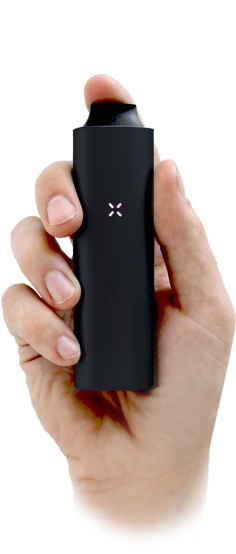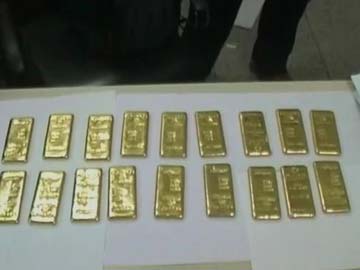Counterfeit Cosmetics, Fragrances-Hazardous to Your Health
You see what appears to be your favorite brand name eye shadow, eye liner, or fragrance for sale at a flea market or on an unfamiliar website. You notice the price is lower than what you normally pay at your favorite retail store or through an authorized online dealer. Before you hand over your hard-earned money, though, keep this in mind: It could be counterfeit, and—in addition to buying something that’s not the real deal—you are also risking your health by buying and using products that may contain substandard or even dangerous substances.
The National Intellectual Property Rights (IPR) Center—of which the FBI is a partner—wants you to know that the volume of all sorts of counterfeit cosmetics and fragrances coming into the U.S. is definitely on the rise…that’s according to our industry partners as well as law enforcement. Why is this happening? Because the Internet has given counterfeiters widespread access to customers, and because criminals increasingly view dealing in counterfeit personal care products—as well as other knock-off consumer goods as well—as a relatively low-risk crime since many of the perpetrators are located outside of the U.S.
Lear MoreSavanna Tobacco refutes cigarette smuggling charge
HARARE – There were reports last week that Savanna Tobacco was smuggling cigarettes into South Africa and that the company was making millions of dollars through the illegal trade.
DN: There have been accusations in the South African media that Savanna Tobacco is involved in the smuggling of cigarettes to South Africa. Please give us your comment on this.
ST: The accusations are patently false.
There is no iota of evidence by the media in question to back up this fictitious story. One Stephen Botha, head of Forensic Security Services (FSS), telephoned Savanna’s general manager in South Africa at the beginning of December promising “revenge” for the arrest of two of his service providers in Zimbabwe for espionage. Upon further investigation, FSS and Botha have been proven to be service providers for a major competitor of ours.
http://www.dailynews.co.zw/articles/2014/01/02/savanna-tobacco-refutes-cigarette-smuggling-charge
Lear More
Fake tobacco vaporisers a health risk, warns Ploom
A US manufacturer of tobacco vaporisers and e-cigarettes has warned that counterfeit copies of its products could be harmful. San Francisco-based Ploom has developed portable vaporisers – colloquially known as ‘vapes’ – that heat rather than burn tobacco and markets them as a “redefinition” of tobacco use. Unlike e-cigarette products these products use real tobacco rather than liquid nicotine. The firm is careful not to make any claims for the products in terms of being healthier than smoking or a way to quit the habit, for fear of falling foul of health claim regulations, but notes that the product produces no smoke.
http://www.securingindustry.com/fake-tobacco-vaporisers-a-health-risk-warns-ploom/s111/a1930/
Lear More
Crackdown on fake Swiss watches bears fruit
Swiss watch manufacturers chalked up a number of successes in 2013, with 120,000 counterfeits intercepted in collaboration with the authorities, according to the Swiss News Agency. The Federation of the Swiss Watch Industry (FH) said the bulk of the seizures – around 90,000 items between January and November – took place in operations within Dubai, a primary hub for the counterfeit watch trade, with other raids taking place in Italy and Russia. In addition, around 700,000 counterfeit watch components were also intercepted during 2013. In February, two Dubai warehouses were visited by police and 33,000 fake watches were seized in a single operation, “preventing serious economic loss to wholesalers,” notes the FH. Prior operations have resulted in six convictions, with defendants ordered to serve prison sentences and authorisation given to destroy all confiscated items, it adds.
Lear MoreChennai: Two persons held at airport for smuggling gold worth 30 lakhs
Chennai: Two persons were arrested at the airport in Chennai for allegedly attempting to smuggle gold worth Rs. 30 lakh from Sri Lanka today. Customs officials arrested the two hailing from Tamil Nadu after a check-up revealed they had concealed the precious metal in their body. A total of 900 grams of gold was recovered from the two passengers, who arrived from Colombo, official sources said. In another incident, two Nepali women were held by the immigration officials for allegedly possessing fake passports. A Nepali man was also detained for allegedly helping them, the sources said, adding they were handed over to the local police.
Lear MoreCBP Officers Intercept More Than 24,000 Counterfeit Headphones
Portal, N.D. — U.S. Customs and Border Protection (CBP) officers recently targeted a rail container at the port of Portal, North Dakota. On November 16, CBP officers inspected the container and discovered headphones, manufactured in China, bearing the trademark “Beats.” CBP determined that the trademark was counterfeit, and seized 24,660 items with a manufacturer’s suggested retail price of $10,776,420. “Our CBP officers are working diligently at our ports of entry to protect businesses and consumers every day by combating the trade in counterfeit and pirated goods,” said Barbara Hassler, CBP assistant port director for Trade. “These seizures represent the commitment by CBP to protect the American consumer from receiving fraudulent, inferior and in many cases potentially dangerous products.” CBP is a key player in the enforcement of intellectual property rights (IPR). Stopping the flow of illicit goods is a Priority Trade Issue for CBP. The importation of counterfeit merchandise can damage the U.S. economy, and threaten the health and safety of the American people. With the growth of foreign trade, unscrupulous companies have profited billions of dollars from the sale of counterfeit and pirated goods.
Lear More
Hyderabad: Gold worth Rs. 5 crore seized at airport
Hyderabad: Gold bars worth over Rs. 5 crore were today seized at the international airport in Hyderabad from three passengers, who were allegedly trying to smuggle the precious metal, officials said. The trio, who arrived in Hyderabad from Singapore, has been arrested. As many as 18 gold bars, each weighing one kilogram and valued at over Rs. 5 crore, were seized from the passengers who landed at the Rajiv Gandhi International Airport at Shamshabad during wee hours, a customs official said. The three, Hazi Mohammad, Ziauddin and Chokkalingam – who were travelling by a private airline – will be produced in a local court, he said. The gold was meant to be smuggled to Chennai further, the official said, adding an investigation was on.
http://www.ndtv.com/article/cities/hyderabad-gold-worth-rs-5-crore-seized-at-airport-460955
Lear MoreTobacco smuggling ring dismantled at Niagara bridges
Police and border officials have dismantled what they are calling a major tobacco smuggling network with ties to Niagara. The Hamilton/Niagara RCMP and Canada Border Services Agency announced this week that a number of people have been arrested in connection with a large contraband tobacco smuggling and trafficking operation allegedly responsible for smuggling in excess of 73 tonnes of un-stamped water pipe tobacco into Canada since 2010. “Contraband tobacco is a threat to the security and health of Canadian citizens,” said Rick Comerford, CBDA spokesperson. “People need to be aware that if they purchase contraband tobacco, they are funding criminal activity.” A joint investigation was launched in 2011 after 1,440 kilograms of tobacco was seized at the Peace Bridge in Fort Erie in July 2001 followed in October by a seizure of another 1,440 kilograms of tobacco at the Queenston-Lewiston Bridge. As the investigation progressed, police said, a larger smuggling organization was uncovered.
Lear More‘Sad day’ as drug smuggling cop sentenced
A west Auckland police officer who smuggled cannabis, tobacco and other items to prisoners was today sentenced to community work. Lotovale Perese, who was a police officer for 13 years, gave items to 16 prisoners in Waitakere District Court holding cells on 77 occasions over a six-month period earlier this year. Constable Perese, 42, appeared before the very court he was employed to police. “It’s a sad day indeed to see you in the dock,” Judge David Wilson told him. Perese was a police escort at Waitakere District Court for over two years when he started giving cannabis and other contraband to prisoners. This included cigarettes, cigarette papers, lighters, cellphone, a SIM card and bottles of tattoo ink, Crown Prosecutor Lepeka Tatila said.
Lear More
PD: Fake coupons used to steal from Target
PHOENIX — Police say they have arrested a woman who used fake, homemade coupons to steal hundreds of thousands of dollars from Target stores around the Valley. Terry Darcy, 51, was taken into custody on Friday. She’s facing charges of theft by misrepresentation, possession of forged instruments and trafficking in stolen property. The investigation began six weeks ago after police were contacted by analysts from Target. The Target analysts suspected Darcy was using the fake coupons to get large quantities of products for free. Detectives with the Phoenix Police Business and Economic Stability Team (B.E.S.T.) immediately began gathering information and evidence including receipts and video surveillance footage. The investigation showed more than $175,000 in current loss to the business, but records also indicate the suspect may have been operating since 2008 and could have obtained more than $300,000 a year in fraudulent theft and returns.
Lear More



